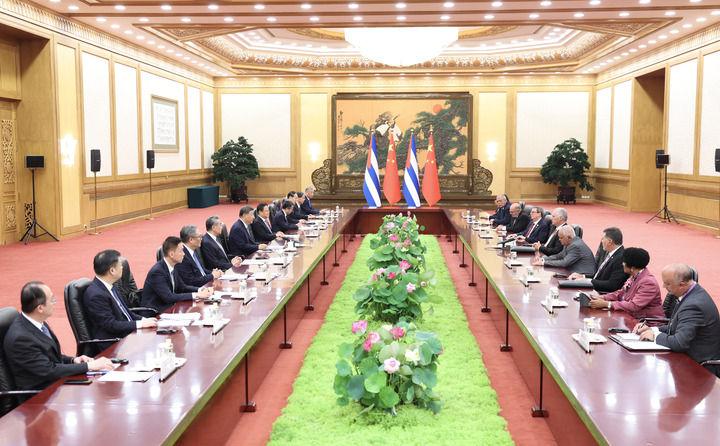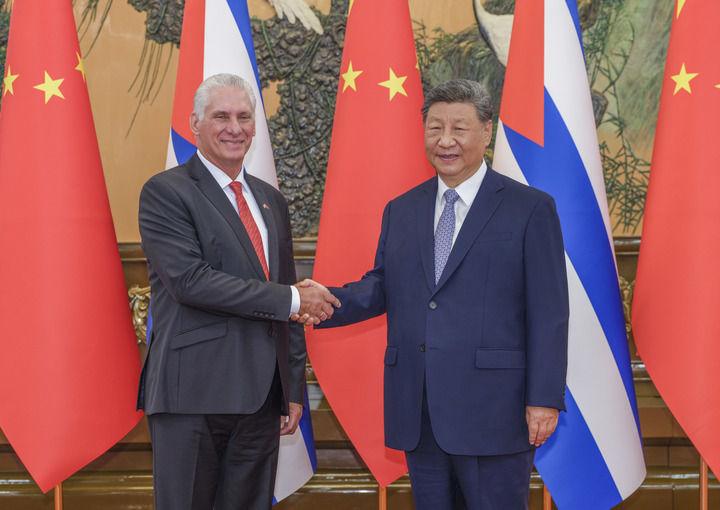On the morning of September 4, General Secretary of the Communist Party of China Central Committee and President of the State Xi Jinping met with First Secretary of the Central Committee of the Communist Party of Cuba and President of Cuba Miguel Díaz-Canel at the Great Hall of the People in Beijing. Díaz-Canel was in China to attend events commemorating the 80th anniversary of the victory of the Chinese People’s War of Resistance Against Japanese Aggression and the World Anti-Fascist War.
Xi Jinping pointed out that in recent years, the construction of the China-Cuba community with a shared future has deepened and achieved tangible results, becoming a distinct symbol of the ironclad friendship between the two Parties and nations. This year marks the 65th anniversary of the establishment of diplomatic relations between China and Cuba. Both sides should take this opportunity to elevate China-Cuba relations to a higher level, better benefiting the peoples of both countries.
Xi Jinping emphasized that China and Cuba must adhere to sharing a common future, deepen high-level political mutual trust, further intensify high-level exchanges, strengthen exchanges of experience in party and state governance, firmly support each other, and continue to deepen their special bond of unwavering mutual trust. They must persist in sincere mutual assistance, systematically advance development cooperation; China is willing to continue providing assistance and support to Cuba within its capacity. They must work together with one heart, strengthen all-round strategic coordination, continue to coordinate and cooperate within frameworks such as the Group of 77 and BRICS, implement the Global Development Initiative, Global Security Initiative, Global Civilization Initiative, and Global Governance Initiative, jointly establish the International Organization for Mediation, and make greater contributions to promoting world peace and development. China will continue to firmly support Cuba’s just struggle against interference and blockade.

Díaz-Canel expressed that the events commemorating the 80th anniversary of the victory of the Chinese People’s War of Resistance Against Japanese Aggression were grand and warm, holding significant historical meaning. China’s important contributions to the victory of the World Anti-Fascist War will be forever remembered. Cuba was the first country in Latin America to build a bilateral community with a shared future with China; the relations between the two Parties and countries are close, and their friendship is unbreakable. Cuba firmly adheres to the One-China principle, thanks China for its selfless support and assistance in Cuba’s economic and social development, and looks forward to continuing to strengthen all-round cooperation, high-quality joint construction of the “Belt and Road,” and is willing to provide a better business environment for Chinese enterprises. Cuba highly appreciates and fully supports the global governance initiatives proposed by President Xi Jinping, will actively implement them, promote a more just and reasonable international governance system, and safeguard the common interests of developing countries.
The two sides issued the Joint Statement of the People’s Republic of China and the Republic of Cuba on Accelerating the Construction of a China-Cuba Community with a Shared Future, and signed multiple bilateral cooperation documents in areas including joint construction of the “Belt and Road,” practical cooperation, the Global Security Initiative, local agriculture, and artificial intelligence.



